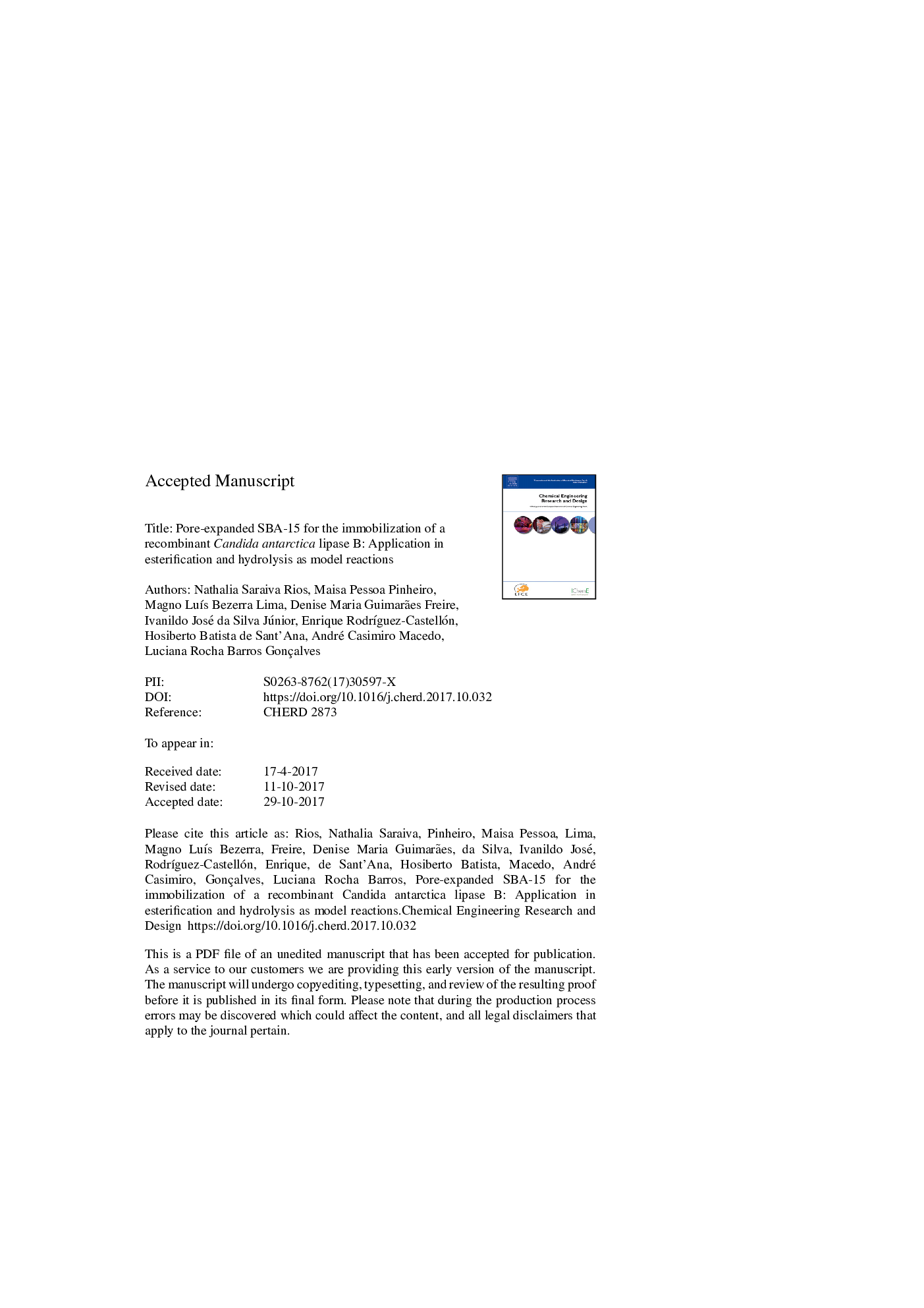| Article ID | Journal | Published Year | Pages | File Type |
|---|---|---|---|---|
| 7006287 | Chemical Engineering Research and Design | 2018 | 49 Pages |
Abstract
A pore-expanded mesoporous silica (SBA-15) was investigated for the immobilization of a recombinant Candida antarctica lipase B (LIPB). The influence of contact time and medium pH during adsorption, as well as thermal and solvent stability of the immobilized enzyme were evaluated. The best prepared biocatalyst was then evaluated in a model esterification reaction, the production of two flavour esters (e.g. methyl and ethyl butyrate) and in a model hydrolysis reaction, the ethyl hexanoate hydrolysis. The biocatalyst maintained high activity and operational stability even after five successive cycles of synthesis. A commercial C. antarctica lipase B was also immobilized on SBA-15 and evaluated under the same conditions, achieving similar volumetric productivities. In addition, the biocatalyst SBA-15-LIPB was tested in ethyl hexanoate hydrolysis. The influence of reactional medium pH was conducted (pH 5, 7 and 9.2) and the highest biocatalyst activity was at pH 5 (about 636.3Â U/genzyme). SBA-15-LIPB and SBA-15-LIPB-GA (crosslinked biocatalyst) were reused for 5 cycles, retaining, after the third cycle, 56.6 and 76.80%, respectively, of its initial activity. The prepared biocatalysts were able to catalyze the model reactions (esterification and hydrolysis) with high activity and reasonable stability.
Related Topics
Physical Sciences and Engineering
Chemical Engineering
Filtration and Separation
Authors
Nathalia Saraiva Rios, Maisa Pessoa Pinheiro, Magno LuÃs Bezerra Lima, Denise Maria Guimarães Freire, Ivanildo José Júnior, Enrique RodrÃguez-Castellón, Hosiberto Batista de Sant'Ana, André Casimiro Macedo, Luciana Rocha Barros Gonçalves,
